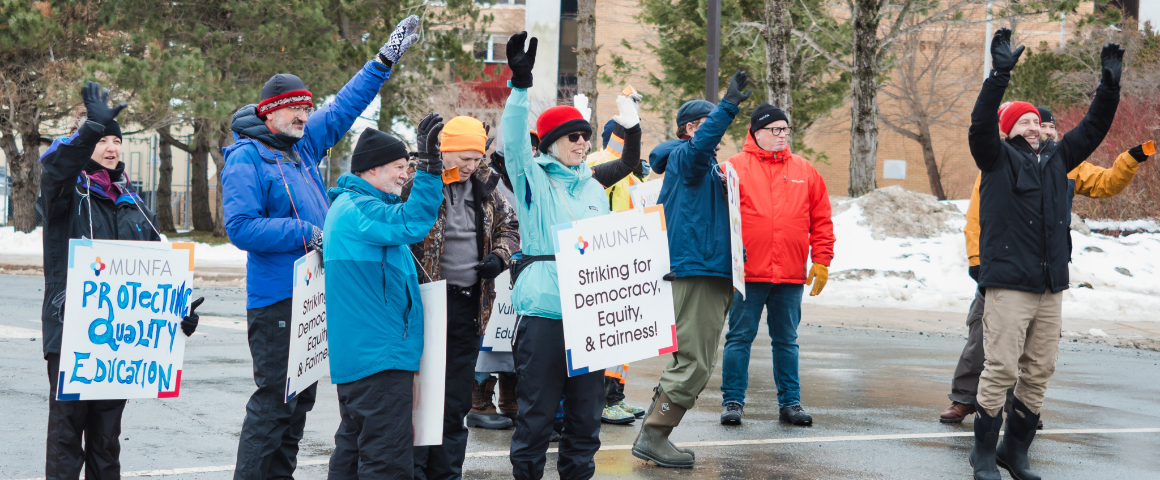By Sean Burton
Staff at Memorial University of Newfoundland and Labrador represented by the Memorial University of Newfoundland Faculty Association (MUNFA) are on strike. A strike vote had been conducted on January 18, with 93 percent of the membership voting and 90 percent in favour of strike action, an overwhelming statement of support for the union and expression of frustration with the university’s administration.
On February 3, rallies in support of MUNFA workers were held at the main campus in St. John’s and at Grenfell Campus in Corner Brook, attended by hundreds of people. Other unions at the university and around the province have expressed solidarity with MUNFA, and the student union has been especially vocal in their support.
Speakers at the rallies reiterated the key demands of the union. One is the matter of collegial governance: faculty have only limited involvement in the management of the university and chiefly MUNFA wants to see faculty representatives on the university’s board of regents. MUNFA has also been pushing for salary increases.
But the biggest concern is the university’s reliance on temporary contract staff. This precarious and low-pay work has become the norm in many places. At the rally in Corner Brook, MUNFA representative Nathalie Pender stated that there were workers in attendance there making more on strike pay than when they were working regularly. There is also the risk of a two-tier system of pensions for staff, something the union is keen to resist. Meanwhile the administration is encouraging non-MUNFA staff to cross picket lines and there is no official academic amnesty in place for students missing class.
The strike is the culmination of discontent that has long been brewing at the university. A great deal of that discontent is focused on the person of the university’s president, Vianne Timmons. Timmons had narrowly avoided a non-confidence vote from faculty and staff at her former position at the University of Regina in 2013 over rising costs, an increase in non-academic positions and alleged lack of transparency over use of funds. Similar concerns have crept into the discourse at MUNL. There was some controversy earlier last year when the administration attempted to shut down protests led by campus activist Matt Barter, and there has been criticism of the administration spending money to, as they put it, “attract the best talent.” This includes Timmons’ own considerable salary of $450,000 plus an additional $34,000 in benefits. More recently the university financed a forum at the luxury Fogo Island Inn where the cheapest room is $2,875 for a minimum three-night stay.
Tuition fees have also been rising at the university. The administration has its share of responsibility there, and Timmons has repeatedly shown that she views the university not as an institution of public enlightenment but as a business opportunity. Ultimately, the rising costs being forced upon students lie at the feet of the provincial government for not only allowing but expecting it by ending the long-standing tuition freeze and reducing the Core Operating Grant by $68.4 million over the next five years.
Enthusiasm on the picket lines remains strong, and MUNFA workers are confident that they will push the administration to the breaking point.
[Photo: Twitter @MUNFaculty]
Get People’s Voice delivered to your door or inbox!
If you found this article useful, please consider subscribing to People’s Voice.
We are 100% reader-supported, with no corporate or government funding.




